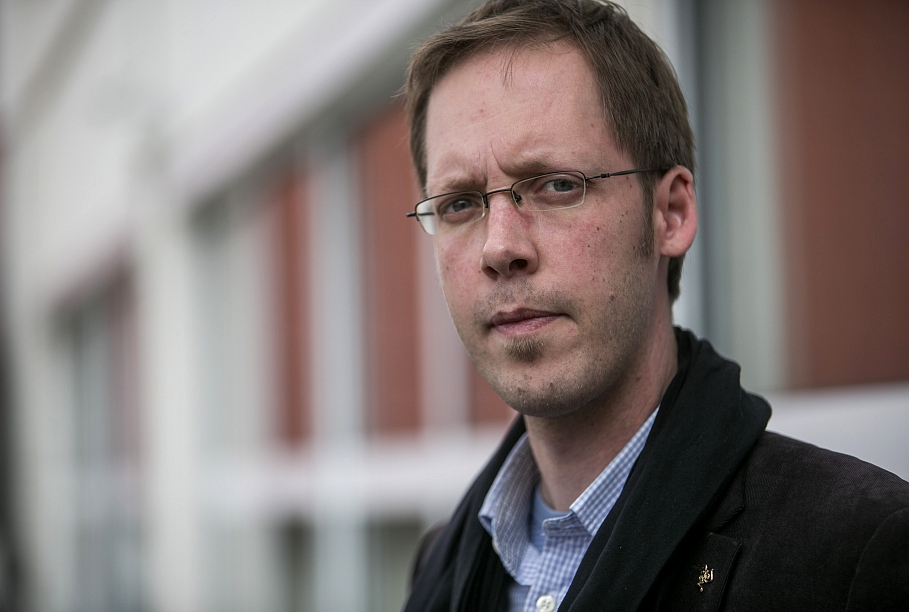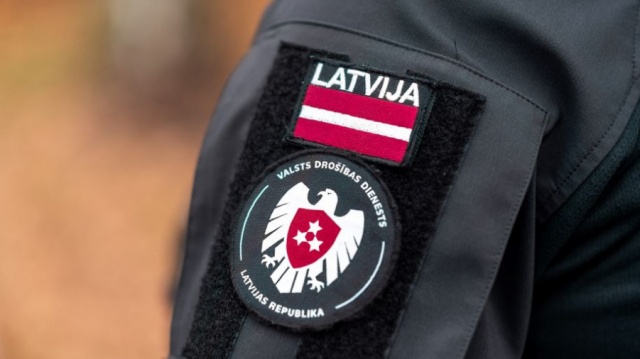States where relatively few numbers of Muslims reside – such as Latvia – are not in any particular danger of radicalization movements or jihad-inspired terror acts, the Belgian Islamic affairs specialist told LSM’s Brussels-based writer Darya Kulagina. On the other hand, he warned, one needs to look toward Russia with extra caution.
“I don’t see why the Islamic State terrorists should be interested in states like Latvia,” the expert said, basing his remarks on his experience as a historian focused on the Arabist and Islamicist perspective on current affairs. He maintains a blog cataloging the web-based communications of jihadist social networks, archiving even long-erased live postings for posterity.
Disregarding the fact that Latvia has always been an active supporter of NATO coalitions and western policy in Afghanistan and Iraq, “Latvia and the Baltic states together in no way figure as a terrorist target. Certainly not at this point in time,” believes Van Ostaeyen.
Having monitored the parallel Arab- and English-language blogospheres of the worldwide jihadist movement since 2011, he wouldn’t have been able to snag evidence of Islamic jihadist propaganda, had it appeared in the Latvian language.
However, Russian-language social networks are another important communications mode for followers of radical Islam, claims Van Ostaeyen. The Belgian expert has maintained links with Russian-speaking bloggers to monitor the blogospheres of Chechnya and the neighboring Caucasus republics, where such cells and sentiments are said to abound.
“My blog in Russia is blocked,” he told LSM. He believes Russian power structures are trying to deny access to information not just to the terrorists, warlords and radicals in the southern republics, but to all of its citizens in general.
Archiving downloaded evidence of original materials posted by the world’s online holy warriors, Van Ostaeyen works with Human Rights Watch, the Red Cross and other international organizations that can use the evidence in their legal and humanitarian work.
“The Chechen fighters are among the most barbaric I’ve seen,” he claims, offering detailed video evidence of hostage beheadings in Chechnya. He further suggests extreme radicalism has spread widely throughout the so-called Caucasus Emirate – Dagestan, Ingushetia, Kabarda-Balkaria, Karachay and Cherkessia.
He cited Monday’s demonstrations in the Chechen capital of Grozny against the caricatures of the prophet Mohammed under the secular government of republican leader Ramzan Kadirov. According to Russian media reports, 800,000 people (i.e. half the nation’s population) took part in the mass rally.
As far as Latvia is concerned, the potential destabilization of society is more likely to come from Russia’s side, since the Russian-language speaking segment makes up such a big part of the public.
“In light of what Russia is doing in Ukraine and how it continues to act, this seems plausible and possible,” believes Ostaeyen. In the social networks he sees how users are growing more concerned about the Baltics being next in line behind Ukraine.
On Monday, the Security Police (DP) stated that no mass radicalization of the Muslim community of Latvia was happening and that the law enforcement service is closely following the case of the sole resident of Latvia who is currently reported to be in Syria fighting on behalf of radical Islamic forces.
“This person was converted from Christianity to the Islamic faith,” Juris Leitietis, chief of the DP’s Anti-Terrorism Center told Latvian Television news program Panorāma Monday. “It’s hard to speculate what should be done upon his return to Latvia. But some usually do strive to bring the jihad back to their home countries,” he said.
The DP’s top anti-terror chief stressed that this is the only person about whom the service has any long-standing knowledge, but there is no reason to presume there couldn’t be others.
He also said that the threat of terrorism in Latvia was very low and that the Muslim community was on very cooperative and friendly terms with law enforcement authorities.




























